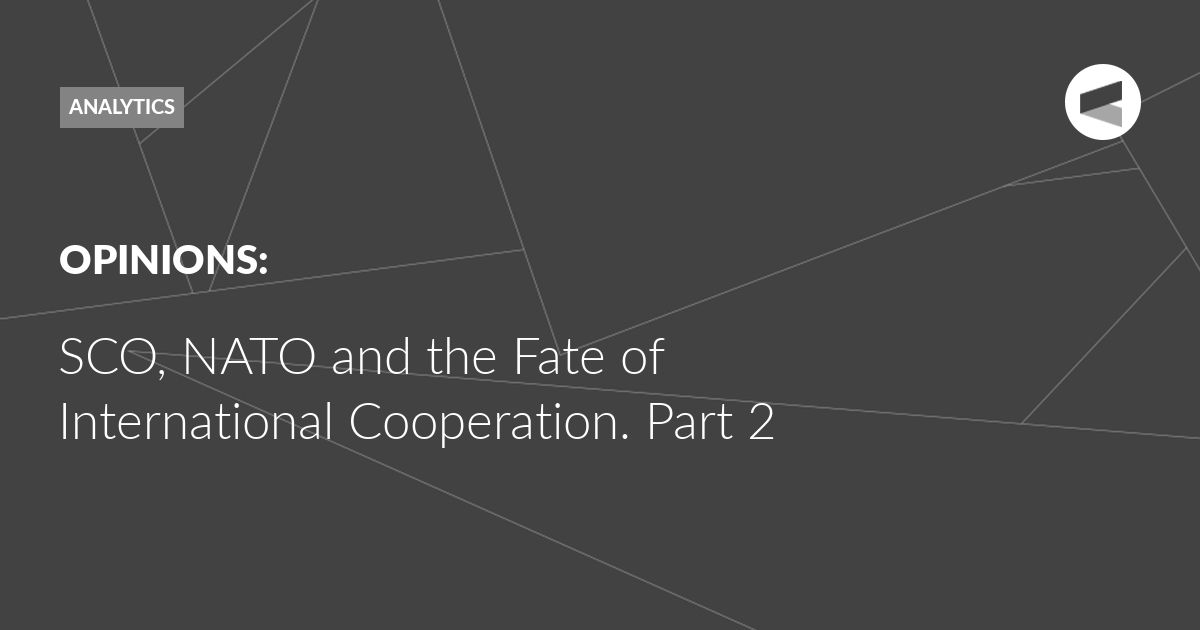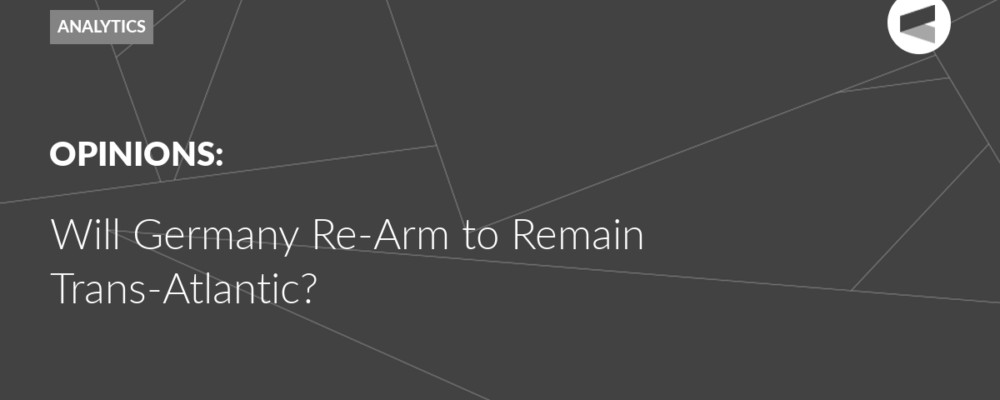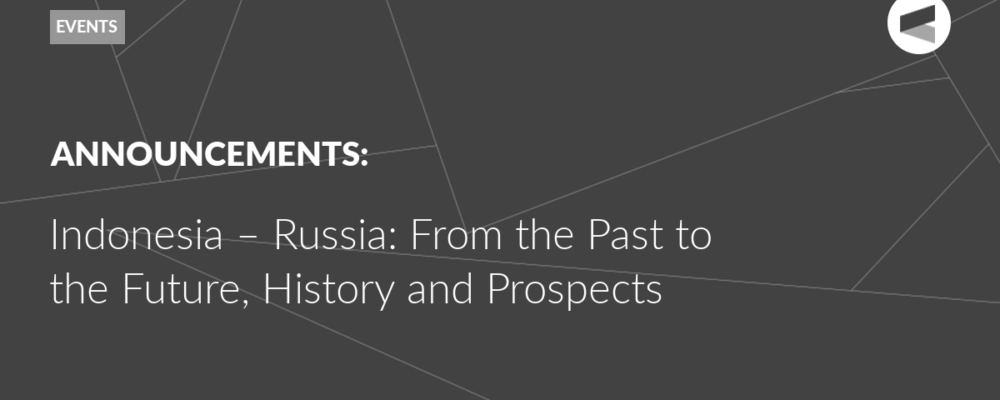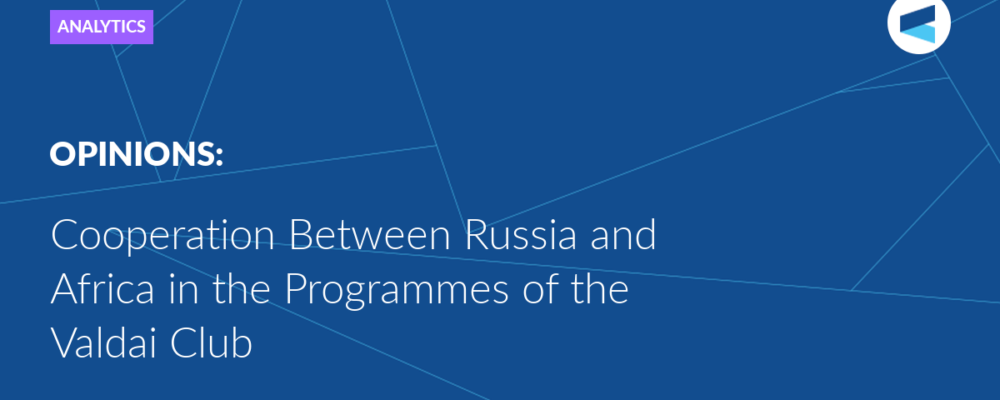SCO, NATO and the Fate of International Cooperation. Part 1
The Shanghai Cooperation Organisation, unlike NATO, is not underscored by decades of tradition or any fundamental philosophy. It did not grow out of the experience of several centuries of interaction between states with relatively similar internal orders and a similar view of the world. Moreover, at first glance, the SCO member countries have little need for cooperation among themselves as a way of strengthening their foreign policy positions at a broader international level.
They are not states for which it is vital to present a united front on important international issues simply because their common interests in relation to the rest of humanity require it. The West, as we know, has always needed this, since its position in the world has been quite isolated and predatory. Predators unite in packs and coordinate their actions much better than the rest of the animal kingdom; states are no exception.
The SCO emerged in 2001 for two fundamental reasons. First, crisis phenomena are gradually growing within the framework of the international order that arose after the Cold War. NATO’s aggression against Yugoslavia illustrated that the United States and its allies have failed to live up to the expectations placed on them by the wider international community. Force has fully returned to world politics, and the subsequent invasions of Afghanistan and Iraq by the United States and its allies only confirmed that they cannot be considered universal guarantors of all-encompassing development and security. Impressed by these processes, China, Russia and the four Central Asian states created a new platform for active diplomatic dialogue among themselves, the most important task of which was to do what the West was unable to do: to strengthen international stability at the regional level and, particularly, resolve potential problems in relations between states.
Second, the reason for the creation, development and strengthening of the SCO was the increased understanding by its states that security in Central Eurasia is their own business and no one else can be responsible for it. In the first half of the 2000s, it was already obvious that the crisis of the “unipolar” international order could lead to increased instability in the most important regions of the planet. In Eurasia, radical religious movements of a cross-border nature became sources of instability. Thus, the countries of Central Eurasia were faced with the task of coordinating their actions to repel these threats in conditions where the capabilities of the wider international community were increasingly limited by the selfish behaviour of the United States and Europe, characterised by their inability to play the role of stabilizers outside their borders.
As we see, neither of the two main reasons for the emergence and development of the SCO concerns the internal order in the member countries. All of them initially absolutised their sovereignty and ability to determine foreign and defence policy solely on the basis of independence. There has never been any talk of depriving them of such a right or actual opportunities within the SCO and there never could be. Thus, from the very beginning, this association developed in isolation from the European tradition of international order through mutual interference in internal affairs. The SCO countries based their cooperation precisely on the principle of mutual recognition of equality and non-interference in each other’s internal policies. Also, from the very beginning, it was impossible for the SCO to create a model of unique leadership, as is typical for NATO. Russia and China are equal powers in terms of their position in the global security system. Neither of considered their SCO partners from the point of view of projecting their military capabilities in the event of a conflict with each other or a third state.
The SCO, unlike NATO, does not provide a “security umbrella” for the ruling elites of its member countries, each of which retains full sovereign responsibility. With one exception: within the framework of the SCO, cooperation has traditionally been developed in the fight against transboundary phenomena that can have a serious destabilising effect. Here w are talking about international terrorist networks and organisations whose goal is to violently alter the political system and social structure. However, the SCO, even in pursuing such a goal, has never created mechanisms for direct intervention in the internal affairs of its member countries. Moreover, we could not talk here about unifying military planning or other ways to limit the freedom of the participating countries in determining their foreign policy strategy.
Subsequently, the SCO continued to develop precisely along this path. In 2017, India and Pakistan joined the organisation – two countries separated by decades of military-political confrontation, the foundation of which was laid at the time of the collapse of British colonial rule. In 2022, Iran became a member country of the SCO – a state that absolutises its sovereignty and the ability to completely independently choose a foreign policy strategy. Finally, in 2024, Belarus, connected with Russia by exceptionally close allied obligations and now subject to pressure from the collective West, will join the SCO. We see that all these countries are completely far removed from even the hypothetical possibility that their domestic policies and development will be determined by another state or international organisation in which they participate. Thus, all these years, the SCO has continued to move along a path that is directly opposite to the one that the “classical” institutions of the West have chosen for themselves.
Now the SCO is an association of states whose interaction concerns only issues of an international nature. These include, of course, the problems of the broader world structure and order – this is inevitable in conditions when the traditional hegemons in the West are no longer coping with their responsibilities and are pursuing a policy of destabilising the rest of the world. However, the first priority within the SCO is still the search for diplomatic compromises between its members regarding the organisation of the Eurasian space as a space of sovereign states, each of which is very attentive to the issue of its independence. It is absolutely impossible to imagine the emergence of mechanisms within the SCO that could limit such independence. The political elites of the SCO countries are fully aware that maintaining internal stability is their own business and do not plan to transfer responsibility for this to the organisation or, especially, to a hegemon.
Thus, we see that NATO and the SCO represent two opposing concepts of ensuring international security: through control over the internal politics of the states included in the system, and through intensive diplomatic dialogue between them. We cannot now say with certainty which of these concepts may become the most generally accepted in the future. However, so far, the current trends in the political development of the world speak in favour of the second. The events of the last two years have shown that the desire to maintain sovereign control over development issues is the most important feature of the behaviour of most countries in the world.
Yes, of course, this does not work out in all cases and setbacks along the way are possible. In the same SCO, there are countries that, after gaining independence, did a lot to ensure that their actual sovereignty was limited by close economic ties with the West. However, in general, it is difficult to imagine that a new system of global and regional security can be based on the “good old” European principles, which primarily entail certain forms of influence on each other’s domestic policies. Therefore, it is the SCO model, despite its obvious imperfections, that now seems to be the most promising. NATO, in turn, even if it survives, will increasingly lose the quality of an international organisation and become an association of elites of Western countries around the United States and its own desire to maintain permanent power and a static social order.
SCO, NATO and the Fate of International Cooperation. Part 1
The Valdai Discussion Club was established in 2004. It is named after Lake Valdai, which is located close to Veliky Novgorod, where the Club’s first meeting took place.
Please visit the firm link to site






